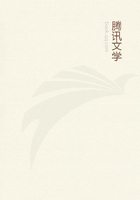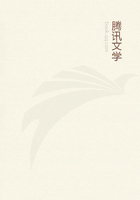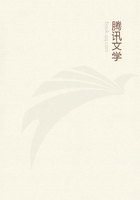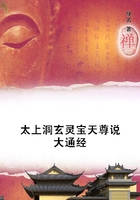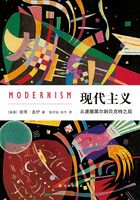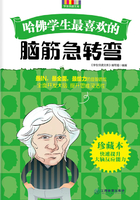It remains to mention two other methods of increasing the amount of money in active circulation in a state The first is when Undertakers and private individual borrow money from their foreign correspondents a interest, or individuals abroad send their money into the state to buy shares or government stocks there. This often amounts to very considerable sums upon which the state must annually pay interest to these foreigners These methods of increasing the money in the state make it more abundant there and diminish the rate of interest. By means of this money the Undertakers in the state find it possible to borrow more cheaply to set people on work and to establish manufactories in the hope of profit. The Artisans and all those through whose hands this money passes, consume more than they would have done if they had not been employed by means of this money, which consequently increases prices just as if it belonged to the state, and through the increased consumption or expense thus caused the public revenues derived from taxes on consumption are augmented. Sums lent to the state in this way bring with them many present advantages, but the end of them is always burdensome and harmful. The state must pay the interest to the foreigners every year, and besides this is at the mercy of the foreigners who can always put it into difficulty when they take it into their heads to withdraw their capital. It will certainly arrive that they will want to withdraw it at the moment when the state has most need of it, as when preparations for war are in hand and a hitch is feared. The interest paid to the foreigner is always much more considerable than the increase of pubic revenue which his money occasions. These loans of money are often seen to pass from one country to another according to the confidence of investors in the states to which they are sent. But to tell the truth it most commonly happens that states loaded with these loans, who have paid heavy interest on them for many years, fall at length by bankruptcy into inability to pay the capital. As soon as distrust is awakened the shares or public stocks fall, the foreign shareholders do not like to realise them at a loss and prefer to content themselves with the interest, hoping that confidence will revive. But sometimes it never revives. In states which decline into decay the principal object of ministers is usually to restore confidence and so attract foreign money by loans of this kind. For unless the ministry fails to keep faith and to observe its engagements the money of the subjects will circulate without interruption. It is the money of the foreigners which has the power of increasing the circulating currency in the state.
But the resource of these borrowings which gives a present ease comes to a bad end and is a fire of straw. To revive a state it is needful to have a care to bring about the influx of an annual, a constant and a real balance of trade, to make flourishing by Navigation the articles and manufactures which can always be sent abroad cheaper when the state is in a low condition and has a shortage of money. Merchants are first to begin to make their fortunes, then the lawyers may get part of it, the Prince and the farmers of the revenue get a share at the expense of these, and distribute their graces as they please.
When money becomes too plentiful in the state, luxury will instal itself and the state will fall into decay.
Such is approximately the circle which may be run by a considerable state which has both capital and industrious inhabitants. An able minister is always able to make it recommence this round. Not many years are needed to see it tried and succeed, at least at the beginning which is its most interesting position. The increased quantity of money in circulation will be perceived in several ways which my argument does not allow me to examine now.
As for states which have not much capital and can only increase by accidents and conjuncture it is difficult to find means to make them flourish by trade. No ministers can restore the Republics of Venice and Holland to the brilliant situation from which they have fallen. But as to Italy, Spain, France, and England, however low they may be fallen, they are always capable of being raised by good administration to a high degree of power by trade alone, provided it be undertaken separately, for if all these states were equally well administered they would be great only in proportion to their respective capital and to the greater or less industry of their people.
The last method I can think of to increase the quantity of money actually circulating in a state is by violence and arms and this is often blended with the others, since in all Treaties of Peace it is generally provided to retain the trading rights and privileges which it has been possible to derive from them. When a state exacts contributions or makes several other states tributary to it, this is a very sure method of obtaining their money. I will not undertake to examine the methods of putting this device into practice, but will content myself with saying that all the nations who have flourished in this way have not failed to decline, like states who have nourished through their trade. The ancient Romans were more powerful in this wise than all the other peoples we know of. Yet these same Romans before losing an inch of the land of their vast states fell into decline by luxury and brought themselves low by the diminution of the money which had circulated among them, but which luxury caused to pass from their great Empire into oriental countries.
So long as the luxury of the Romans (which did not begin till after the defeat of Antiochus, King of Asia about A.U.C.
564) was confined to the produce of the land and labour of all the vast estates of their dominion, the circulation of money increased instead of diminishing. The public was in possession of all the mines of gold, silver, and copper in the Empire. They had the gold mines of Asia, Macedonia, Aquilaea and the rich mines both of gold and silver of Spain and other countries. They had several mints where gold, silver and copper coins were struck.
The consumption at Rome of all the articles and merchandise which they drew from their vast Provinces did not diminish the circulation of the currency, any more than pictures, statues and jewels which they drew from them. Though the patricians laid out excessive amounts for their feasts and paid 15,000 ounces of silver for a single fish, all that did not diminish the quantity of money circulating in Rome, seeing that the tribute of the Provinces regularly brought it back, to say nothing of what Praetors and Governors brought thither by their extortions. The amounts annually extracted from the mines merely increased the circulation at Rome during the whole reign of Augustus. Luxury was however already on a very great scale, and there was much eagerness not only for curiosities produced in the Empire but also for jewels from India, pepper and spices, and all the rarities of Arabia, and the silks which were not made with raw materials of the Empire began to be in demand there. The money drawn from the mines still exceeded however the sums sent out of the Empire to buy all these things. Nevertheless under Tiberius a scarcity of money was felt. That Emperor had shut up in his Treasury 2 milliards and 700 millions of sesterces. To restore abundance of circulation he had only to borrow 300 millions on the mortgage of his estates. Caligula in less than one year spent all this treasure of Tibetius after his death, and it was then that the abundance of money in circulation was at its highest in Rome. The fury of luxury kept on increasing. In the time of Pliny, the historian, there was exported from the Empire, as he estimated, at least 100 millions of sesterces annually. This was more than was drawn from the mines. Under Trajan the price of land had fallen by one-third or more, according to the younger Pliny, and money continued to decrease until the time of the Emperor Septimus Severus. It was then so scarce at Rome that the Emperor made enormous granaries, being unable to collect large treasure for his enterprises. Thus the Roman Empire fell into decline through the loss of its money before losing any of its estates. Behold what luxury brought about and what it always will bring about in similar circumstances.

